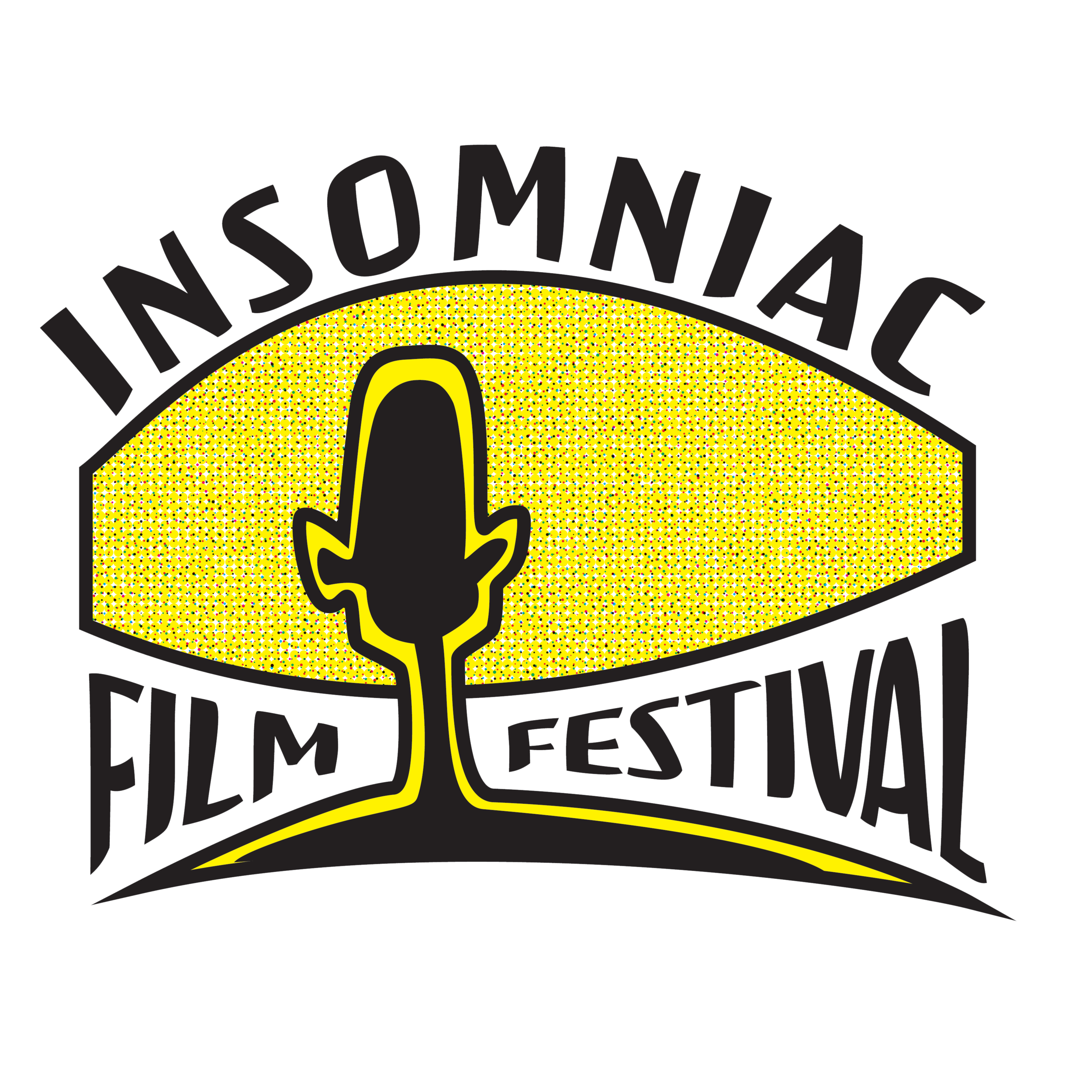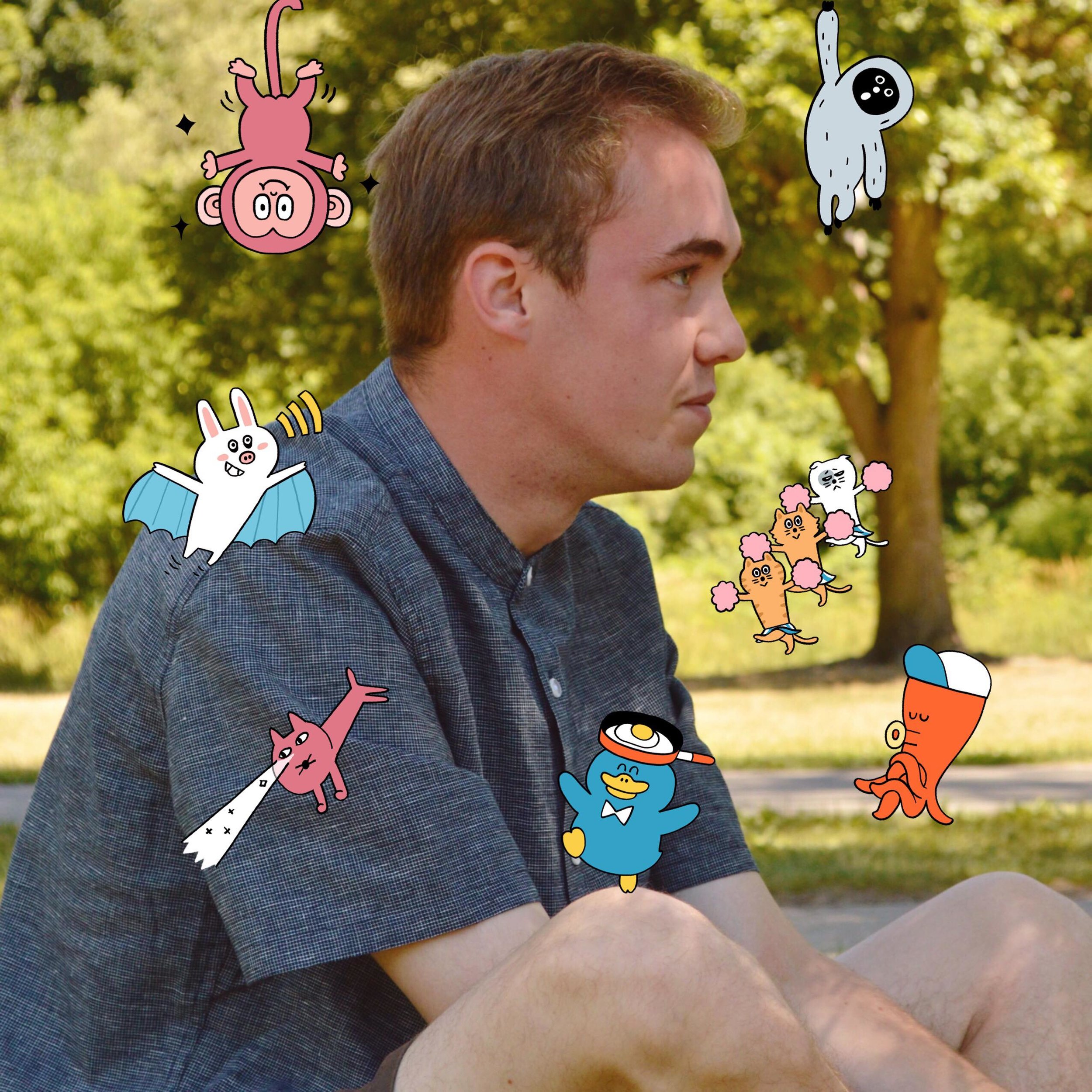Joey phillipson, THE CONCH (2018)
Adam: I mean this in the very best way, so I hope you don't get insulted when I say this...
Joey: Okay...
Adam: This is probably a bad way to start the interview...
Joey: Sure, okay, I'm ready.
Adam: Uh...When Will first starts doing that monologue [in The Conch], I was laughing, cause for me it almost felt like a parody of those 'melodramatic voice over' films, but then as it goes on it's like the best version of that kind of film. It actually becomes this really beautiful, moving tale about leaving home and trying to find comfort. I think that's super impressive - to be able to skirt that line between “am I supposed to be laughing?”
Weeda: Yeah, it's a perfect line. It's so blurred. I was also laughing at the beginning, then it was very poetic, but I was still laughing. And then I was like, “oh my god, this hits home”. Then I wasn't laughing anymore. I got emotional.
Joey: I mean, that's pretty much what I was trying to go for, so that's good to hear! That's what I'm really interested in with most of the films I make – trying to blur that line between “is this supposed to be serious or not serious at all?” And trying to make it both at the same time. I find that fun.
Adam: It's a difficult thing to make something where people wonder “am I reacting in the way they want me to react?”
Joey: I guess I just find super serious, emotional stuff kind of absurd. And I guess I find it hard to take myself seriously. So even if I'm sad about something, or feeling very strongly about something, I also try to laugh at it because I recognize how silly it may be. Maybe it makes me feel better to be able to laugh at that thing. A coping mechanism.
Weeda: So you find humour in melodrama?
Joey: Definitely. I find melodrama very funny and I like playing with cliches. Cliches are funny, but they're true at the same time. That's why they're a thing. Like they're hitting at something, but they're so overdone that it's funny as well.
Hannah: I swear people laugh at shit when they're like “Oh, I relate to this, but I'm embarrassed about it and I don't know how to handle it," so their first instinct is to laugh. Even though inside they want to cry, you know what I mean? People don't know how to take genuine displays of emotion seriously.
Joey: I guess that plays into the stuff in The Conch about taking a small thing — but in your life it's this huge emotional moment — and then playing it up with something like fantasy where it's as if the world is resting on this one part of your life. Cause that's how it feels sometimes, and I think it's fun to think about [those moments] like that. It makes the whole experience feel more meaningful.
Adam: There's something in The Wanderer [dir. Joey & Will Graham] from last year’s festival — that's a moving tale about this fear of friendships falling apart — but the whole structure of the film is that you've turned it into a fantasy story. It's like coping with sad reality through humour, escapism, and fantasy.
Weeda: And in The Conch, you focus on this one thing that's so specific — just the conch and what the conch desires. And that desire becomes so dramatic because it's so focused.
Hannah: I feel like art that plays tribute to small, seemingly mundane things — it's like the biggest tribute you can give to something, by honouring how you felt in the moment.
Joey: Exactly. The small, mundane things are what we live most of the time. We're not having Earth-shattering moments. Huge, like, “my life is completely changing”. That doesn't happen very often. But even something so small can have a big impact.
Hannah: It's so easy to laugh those moments off, because you don't want to seem like you care about the little things. So then to do the opposite is really cool. It's brave.
THE CONCH (dir. Joey Phillipson)
Weeda: Were there any challenges you faced in making the film?
Joey: The most surface level challenge was the cold. Like the opening scene, it was probably the worst cold I'd ever experienced in my life. I couldn't feel my hands, I wasn't sure if I was even clicking buttons on the camera, like I felt no pressure [in my fingers]. I couldn't tell if the shots looked good because my eyes were freezing over.
And then I guess personifying the conch was difficult. Conches don't really look humanlike. There's no face, or eyes or anything that you can immediately use as point of reference to make it seem more human. So trying to figure out ways of framing it and cutting between angles to make it seem like it's a human-like thing was hard to think through, but interesting as well.
Weeda: When you were going into this film, did you always know you wanted a conch as a character?
Joey: Yeah, that was the first thing that popped into my head. A conch on a seashore that someone picked up; and the conch starts feeling bad that it's not in the ocean anymore.
Adam: What's your favourite moment in The Conch?
Joey: It's gotta be the last shot. I wasn't sure if it was gonna work at all. It was completely dependant on JP's performance, and I was blown away by what he was able to do with just his face. He doesn't even say anything, he has no lines to express himself. It's just his facial acting, and he gives the perfect look of ecstasy. I had no idea if it would work outside of his performance and he just blew it out of the park.
Weeda: That's definitely my favourite moment, too.
Adam: We’ve talked about turning something personal into something ridiculous to laugh at yourself a little bit. We're wondering what you discovered about yourself during the process of making this film.
Joey: Well, my whole point for making the film in the first place was exploring something pretty specific at the time. I was in Montreal, feeling isolated from people and not really feeling like I was where I was supposed to be. Which is a big reason why I'm back here. And so I was trying to think through what home meant, besides being just a physical place.
Maybe it's almost a Hallmark cliche answer of "home being where the heart is", or where a human connection is, someone who understands you is. But for me that's what that final moment of Ishmael listening to the conch is. And it's cliche but it's true. Cliches have truth to them. I guess I discovered about myself that definition of home, which also made me feel better about my decision to come back here. That's why I make films. To work through stuff and have fun at the same time.
Weeda: The Conch made me feel really inspired afterwards. I watched it a bunch of times and every single time I was like “Wow, I want to make a film.” You know that feeling you get when you see something and you're like “I want to make a film right now”? That's how I was feeling. I think the simplicity of The Conch is what makes it so captivating.
Joey: That's why I love cliches and melodrama. There's specific points that people can understand what it's referring to, which allows you to go into further things beyond that.
Weeda: Are there any artists outside of film that inspire you as a filmmaker?
Joey: Honestly. Stephen King. He inspires me a lot. Not everything he does is great, a lot of it is schlock. But he just has this incredible wide-ranging imagination that I'm kind of in awe of. People look at him sometimes on a surface level — “oh, he's a horror writer”. But he uses these things to explore other meaningful things. Like IT isn't just about a clown killing kids, it's about growing up and becoming an adult and what that passage from childhood to adulthood is. And it's super cool to see him explore that through a killer clown.
Weeda: It's like when you veil something really important with something so extreme. Like horror for Stephen King, but for you it's exaggerated melodrama.
Adam: I think humour and horror get a similar wrap. Usually it's a vessel for something so much deeper, but people simplify those genres.
Weeda: That's what makes it powerful. At first you don't know why you're being hit so hard. You're either laughing cause it's humorous or you're terrified. But then towards the end, you realize that despite all that, it found a way into your core and it made you realize “oh, shit”.
Joey: I think horror and comedy both work on those specific primal emotions — fear and laughter. So if they're done well, it's easy to have a visceral, immediate reaction. Which can be a powerful vessel to then explore other feelings as well.
THE CONCH (dir. Joey Phillipson)
Weeda: Do you have a shout out you want to give to anyone?
Joey: I want to give a shout out to the ESA Film Department, because how could I not? For teaching me how to make films in the first place and for teaching me how to find myself. That's something I will value for the rest of my life.
Weeda: So, only ESA? No other shout outs?
Hannah: Yeah, what about your family and your friends and the people that have molded you?
Joey: Oh...uh...yeah, that's a good point. My parents have helped me with every single film I have ever made. [Everyone laughs].
Weeda: It's like you're giving your Oscar speech.
Joey: But now you're making me feel bad for not shouting out every person I ever can!
Hannah: Have you ever been to Denny's?
Joey: I haven't. I made plans to go in Grade 12 after Nuit Blanche, but we never made it.
Joey makes, watches, and thinks about films, and isn't qualified to do much else.
He also has an unfortunate habit of not always finishing what he star
FIND JOEY ON YOUTUBE:




